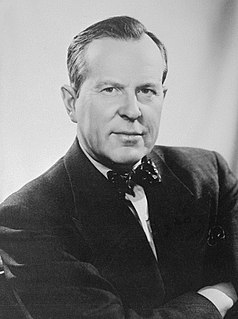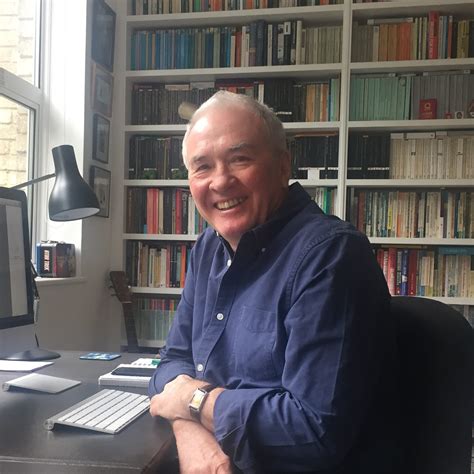A Quote by Lester B. Pearson
Until the last great war, a general expectation of material improvement was an idea peculiar to Western man. Now war and its aftermath have made economic and social progress a political imperative in every quarter of the globe.
Related Quotes
War is no longer made by simply analyzed economic forces if it ever was. War is made or planned now by individual men, demagogues and dictators who play on the patriotism of their people to mislead them into a belief in the great fallacy of war when all their vaunted reforms have failed to satisfy the people they misrule.
There is a myth that the New Deal programs on their own pulled the US out of the Great Depression and created the conditions for the economic boom after World War II. As an economist, I can tell you, that is not true. In reality, it was mainly World War II that launched the boom - the massive war mobilization, the horrifying destruction and death caused by it, and then the reconstruction in its aftermath. he US was the only advanced capitalist country that was not bombed during the war.
Virtually every war fought since the Act of Union had gone badly at some stage, but before 1783 none had ended in defeat. Nor would any major war in which Britain was involved after this date end in defeat. Those who are curious about this country's peculiar social and political stability probably need look no further than this for essential cause.
No civilisation, not even that of ancient Greece, has ever undergone such a continuous and profound process of change as Western Europe has done during the last 900 years. It is impossible to explain this fact in purely economic terms by a materialistic interpretation of history. The principle of change has been a spiritual one and the progress of Western civilisation is intimately related to the dynamic ethos of Western Christianity, which has gradually made Western man conscious of his moral responsibility and his duty to change the world.
In a general view, there are few conquests that repay the charge of making them, and mankind are pretty well convinced that it can never be worth their while to go to war for profit's sake. If they are made war upon, their country invaded, or their existence at stake, it is their duty to defend and preserve themselves, but in every other light, and from every other cause, is war inglorious and detestable.
The great theme of modern British history is the fate of freedom. The 18th century inherits, after the Civil War, this very peculiar political animal. It's not a democracy, but it's not a tyranny. It's not like the rest of the world, the rest of Europe. There is a parliament, laws have to be made, elections are made.
In the middle of the last century there was a reason to go to war. This time around the war was a really bad idea and I think the only people that benefited from it were Halliburton and people that made money from it, but that's not an excuse to have a war. Killing American kids so Halliburton can make money is not a righteous reason to go to war.
Hinduism has made marvelous discoveries in things of religion, of the spirit, of the soul. We have no eye for these great and fine discoveries. We are dazzled by the material progress that Western science has made. Ancient India has survived because Hinduism was not developed along material but spiritual lines.
Japan suffered terribly from the atomic bomb but never adopted a pose of moral superiority, implying: 'We would never have done it!' The Japanese know perfectly well they would have used it had they had it. They accept the idea that war is war; they give no quarter and accept none. Total war, they recognize, knows no Queensberry Rules. If you develop a devastating new weapon during a total war, you use it; you do not put it into the War Museum.


































